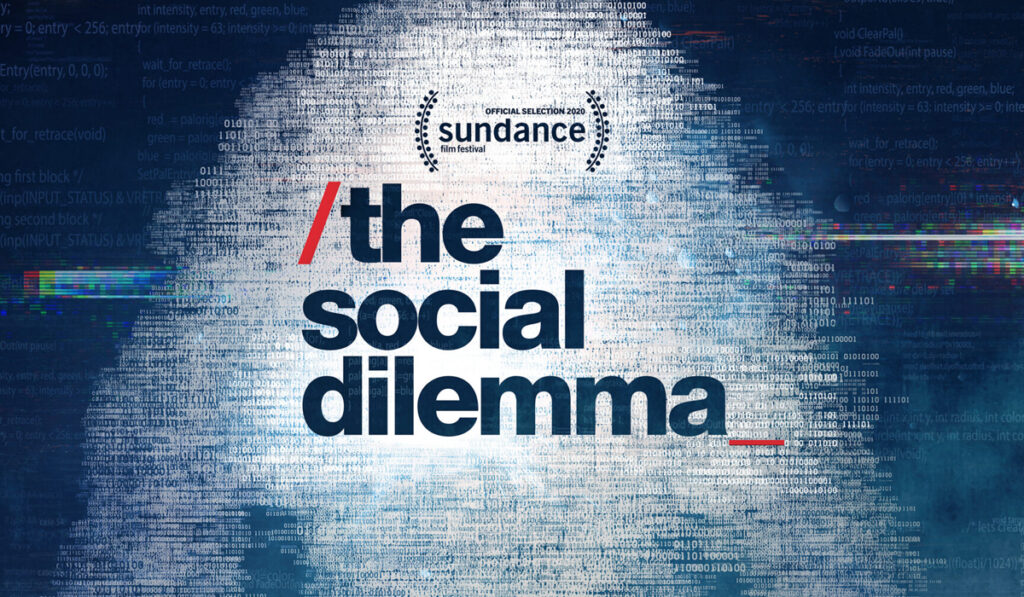
Scroll versus sleep? I recently watched The Social Dilemma and it left me feeling pretty hopeless. I thought I was pretty good at not being on my phone, putting it down at 11pm and trying not to lift it until 8am the next day. But the screen time reminder thinks otherwise. It likes to prod fun at me with jeering messages informing me my screen time is up 15% on the previous week for a grand total of 6 hr 17 mins a day. Six hours a day on my phone… how? Doing what? Achieving what? I claim that I don’t have time to read two books a week but I can do 6 hours A DAY of giving Zuckerberg more data to manipulate and sell. Scandalous. Six hours is the number of hours I sleep. More sleeping than scrolling is the healthier option here. So every week I look at my screen reports and vow that next week I will be better but better never seems to happen. Why?
Even while watching the documentary which informed us of the heinous nature of social media and the power our smartphones have over us, I still found myself reaching for my phone every time it buzzed and sometimes even when it didn’t. Our phones have become an extension of us, an additional limb; tethered to us at all times. You would be shocked if you looked at the amount of times you pick up your phone on a daily basis. Mine exceeds 200 nearly everyday. Can you imagine doing anything else 200 plus times a day that isn’t a natural bodily function like blinking or breathing? Our phones have become so intrinsically linked to our person that we pick them up subconsciously and unwittingly immerse ourselves in the online sphere rather than engaging in the physical world around us.
According to an article by Harvard University researcher Trevor Haynes, whenever you get a social media notification, your brain sends a chemical called dopamine along a reward pathway resulting in a feel good feeling. Therefore it is no wonder our phones are such a distraction; they have become a quick and easy way to get a dopamine hit by simply getting attention from your network in the form of likes, comments, retweets, all with just a few taps of your thumb. The constant chasing of this validation is an addiction and neurologically damaging. The documentary indicated the soaring levels of anxiety and depression amongst young people brought on directly by social media overload.
We are thus left in this social dilemma – we know the constant scrolling and constant use of social media is damaging yet it also has a wide range of positive aspects. We know that it allows us to connect with friends/family on different continents, to engage with educational content, lending a platform to marginalized voices and boosting social justice movements to name a few. This is even more imperative in 2020. Perhaps The Social Dilemma needs to be taken with a pinch of salt? There aren’t three men in a room who are carefully planning and controlling every aspect of our feeds but there is a carefully curated algorithm tailored to us. It manipulates features to make our devices as addictive as possible to keep us tipping those scales towards more scroll and less sleep. Thus with this in mind – it is no negative feat to try reduce our screen time. Is it too late for us to change our habits? I don’t think so. You can take control. You can have your own algorithm in real life. Several small changes can lead to a bigger overall shift in our relationship with our phones. I have been setting screen lock to kick in at 10.30pm-8.30am, turning off notifications for apps, leaving it at home when I go on a walk and charging it in a different room are all small but significant ways I have started trying to reduce my screen time. It’s actually becoming easier as time goes on. Hopefully in a few weeks I will be reading rather than refreshing, talking more than texting and most importantly sleeping more than scrolling.

Lucy Mullan is an Msc in PR and Communications at Ulster University, working part-time at Keys Premium Finance. She can be found at: https://www.linkedin.com/in/lucy-mullan-2b8309102/
